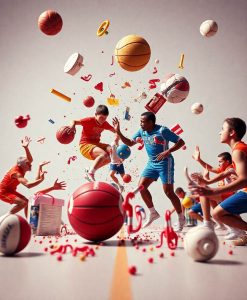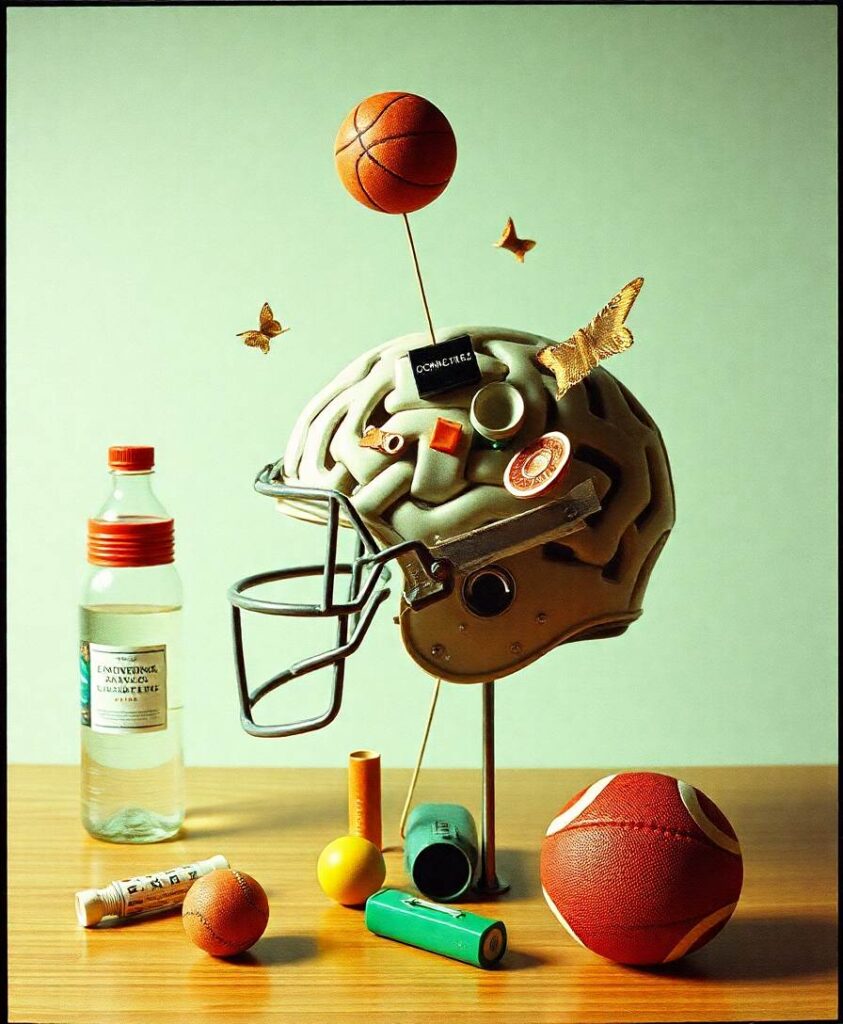Imagine the sensation of your mind feeling foggy, your body weighed down, and every movement requiring a conscious effort. For athletes with ADHD, this isn’t just a fleeting moment of distraction—it’s a stark reminder of how their brains process and recover from physical injuries differently. When a concussion hits, it’s not only about the immediate impact but also about how long the path back to normalcy might take—especially for those managing ADHD.
Living with ADHD often means experiencing the world through heightened sensory awareness, where focus can be elusive, and emotional responses more intense. Now, add a concussion into the mix, and suddenly, the recovery journey can feel even more daunting. A recent study highlights that high school athletes with ADHD tend to take about 16% longer to return to the classroom and 17% longer to get back on the field after a concussion. These numbers might seem like mere statistics, but for the young athletes and their families, they represent a deeper story of resilience, challenge, and the need for tailored recovery strategies.
Why Do Athletes with ADHD Take Longer to Recover from Concussions?
If you’re living with ADHD or caring for someone who does, you might wonder why this prolonged recovery occurs. It’s not just about physical healing; it’s also about the way the brain manages attention, impulse control, and sensory input—functions that are often already taxed in individuals with ADHD.
Concussions cause a temporary disruption in how brain cells communicate, and in those with ADHD, the brain’s circuitry is often more sensitive to these disruptions. That means the usual signs of recovery might be delayed or more complex to interpret. For instance, a student with ADHD might struggle more with concentration, memory, or emotional regulation during recovery, making the return to school and sports a more cautious process.
This nuanced understanding is vital. It’s not simply a matter of rest and waiting out the symptoms but recognizing that the brain’s healing timeline can vary significantly based on existing neurodevelopmental factors. For coaches, teachers, and parents, this means adapting expectations and providing support that acknowledges these individual differences.
Supporting Athletes with ADHD Through Concussion Recovery
So, what can be done to better support young athletes with ADHD as they navigate concussion recovery? The key lies in personalized care and patience. Medical professionals and caregivers should consider the unique neurological landscape of each athlete, creating recovery plans that are flexible and responsive.

Strategies might include gradual reintroduction to cognitive and physical activities, close monitoring of symptoms, and ensuring a supportive environment that reduces sensory overload. Open communication between doctors, school staff, and families is essential—so everyone understands the potential for longer recovery times and can adjust expectations accordingly.
Moreover, awareness about how ADHD influences concussion recovery can empower young athletes. Recognizing early signs of delayed healing or increased difficulty can lead to timely interventions, helping them regain their confidence and return to their passions safely.
Living with ADHD isn’t a barrier to achieving greatness in sports or academics, but understanding its influence on recovery can make all the difference. For young athletes, knowing that their experience might be different doesn’t mean they’re doing anything wrong—it simply highlights the importance of individualized care and patience.
Learn More: Athletes With ADHD Have Longer Concussion Recovery
Abstract: High school athletes with ADHD take longer to recover from a sport-related concussion, a new study says. Those with a concussion took about 16% longer to return to the classroom and 17% longer to return to sports, compared to athletes without ADHD, researchers reported April…
Link: Read Full Article (External Site)


